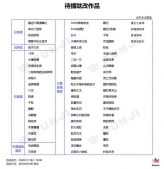使用jdbc实现对数据库的操作
Ⅰ 获取数据库连接
|
1
2
3
4
5
6
7
8
9
10
11
12
13
14
15
16
17
18
19
20
21
22
23
24
25
26
27
|
package org.example.utils;import java.sql.*;public class JavaDateConnection { /** * 获取数据库连接 * @return Connection */ public Connection getConn() { //project为数据库名 String url = "jdbc:mysql://localhost:3306/project"; //用户名 String username = "root"; //密码 String password = "Hyk59308"; Connection conn = null; try { //注册驱动 Class.forName("com.mysql.jdbc.Driver"); //classLoader,加载对应驱动 conn = DriverManager.getConnection(url, username, password); } catch (ClassNotFoundException e) { e.printStackTrace(); } catch (SQLException e) { e.printStackTrace(); } return conn; } |
Ⅱ编写SQL语句对数据库进行操作
|
1
2
3
4
5
6
7
8
9
10
11
12
13
14
15
16
17
18
19
20
21
22
23
24
25
26
27
28
29
30
31
32
|
String sql1="insert into myTable values(?,?,?,?)";//定义sql语句 String sql2="select * from myTable"; //定义sql语句 int result=0; //修改操作的返回值是一个整数,即受影响的行数``/** * PreparedStatement继承自Statement接口,PreparedStatement的对象已预编译过, * 执行速度快于Statement对象,创建其对象时,需要SQL命令字符串作为对象 */ PreparedStatement ps=connection.prepareStatement(sql1); ps.setString(1,"tanker"); ps.setString(2, "m"); ps.setString(3,"1991-11-20"); ps.setString(4, "Franch"); result=ps.executeUpdate(); if(result>0) System.out.println("插入成功"); else System.out.println("插入失败"); //Statement用于将sql语句发送到数据库 Statement statement=connection.createStatement(); //执行数据库操作返回的结果集,其定义的是数据库游标 ResultSet results=statement.executeQuery(sql2); System.out.println("name"+" "+"sex"+" "+"birth"+" "+"birthaddr"); System.out.println("------------------------"); while(results.next()) { System.out.println(results.getString("name")+" "+ results.getString("sex")+" "+ results.getString("birth")+" "+ results.getString("birthaddr")); } System.out.println("搞定!"); |
Ⅲ关闭相关资源
|
1
2
3
4
5
6
7
8
9
10
11
12
13
14
15
16
17
18
19
20
21
22
23
24
25
26
27
28
|
* 关闭Connection PreparedStatement * @param connection * @param preparedStatement */public static void closeConnection(Connection connection, PreparedStatement preparedStatement, ResultSet resultSet){ if (resultSet != null) { try { resultSet.close(); } catch (SQLException e) { e.printStackTrace(); } } if (preparedStatement != null) { try { preparedStatement.close(); } catch (SQLException e) { // TODO Auto-generated catch block e.printStackTrace(); } } if (connection != null) { try { connection.close(); } catch (SQLException e) { e.printStackTrace(); } }} |
使用Druid连接池u对数据库进行操作
Ⅰ创建Druid连接池对象并获取
|
1
2
3
4
5
6
7
8
9
10
11
12
13
14
15
16
17
18
19
20
21
22
23
24
25
26
27
28
29
30
31
32
33
|
package util;import com.alibaba.druid.pool.DruidDataSourceFactory;import javax.sql.DataSource;import java.io.IOException;import java.io.InputStream;import java.sql.Connection;import java.sql.PreparedStatement;import java.sql.ResultSet;import java.sql.SQLException;import java.sql.Statement;import java.util.Properties;public class DBUtil { private static DataSource ds; static { //1.加载配置文件 Properties pro = new Properties(); try { pro.load(DBUtil.class.getClassLoader().getResourceAsStream("/db.properties")); //获取DataSource ds = DruidDataSourceFactory.createDataSource(pro); } catch (IOException e) { e.printStackTrace(); } catch (Exception e) { e.printStackTrace(); } } //获取连接 public static Connection getConnection() throws SQLException { return ds.getConnection(); } |
Ⅱ创建SQL语句实现对数据库的操作
|
1
2
3
4
5
6
7
8
9
10
11
12
13
14
15
16
17
18
19
20
21
22
23
24
25
26
27
28
29
30
31
32
33
34
35
36
37
38
39
|
/** * @param sql SQL语句 * @param objs SQL语句占位符实参,如果没有参数则传入null * @return 返回增删改的结果,类型为int */ public static int executeDML(String sql,Object...objs){ // 声明jdbc变量 Connection conn = null; PreparedStatement ps = null; int i = -1; try { // 获取连接对象 conn = DBUtil.getConnection(); // 开启事务管理 conn.setAutoCommit(false); // 创建SQL命令对象 ps = conn.prepareStatement(sql); // 给占位符赋值 if(objs!=null){ for(int j=0;j<objs.length;j++){ ps.setObject(j+1,objs[j]); } } // 执行SQL i = ps.executeUpdate(); conn.commit(); } catch (Exception e) { try { conn.rollback(); } catch (SQLException e1) { // TODO Auto-generated catch block e1.printStackTrace(); } e.printStackTrace(); } finally { DBUtil.closeAll(null, ps, conn); } return i; } |
Ⅲ关闭相关资源
|
1
2
3
4
5
6
7
8
9
10
11
12
13
14
15
16
17
18
19
20
21
22
|
//关闭资源 public static void closeAll(ResultSet rs,Statement stmt,Connection conn){ try { if(rs!=null){ rs.close(); } } catch (SQLException e1) { // TODO Auto-generated catch block e1.printStackTrace(); } try { stmt.close(); } catch (SQLException e) { // TODO Auto-generated catch block e.printStackTrace(); } try { conn.close(); } catch (SQLException e) { // TODO Auto-generated catch block e.printStackTrace(); } |
到此这篇关于jdbc与druid连接池的使用的文章就介绍到这了,更多相关jdbc与druid连接池内容请搜索服务器之家以前的文章或继续浏览下面的相关文章希望大家以后多多支持服务器之家!
原文链接:https://blog.csdn.net/m0_52000372/article/details/115255588





